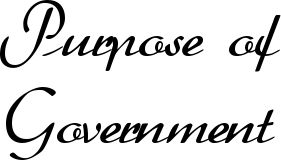| -------------------------------------------------------------------------------------------------------------------------------------------------------------------------------------------------- | |||
 |
|
| Following the attacks on the World Trade Center, the United States passed the Patriot Act and formed a new branch of government called the Homeland Security [1,2,3,4,5,6]. How governments place their priorities in regards to security versus privacy really shows how democratic the country really is. Both sides of the argument can clearly justify acting in one way or another, but whether one side is right or wrong is a bit hazy. At some point, government needs to decide whether crossing a certain line will overall benefit the country as a whole, not just the individual citizens. There are two clear-cut sides to this argument: a citizen’s right to privacy should always be upheld; or a citizen’s safety is more important than his or her right to privacy. Tom Ridge, the Secretary of Homeland Security, argues for the latter. He claims that citizen’s lives should be placed ahead of their privacy as long as it does not harm their quality of life [4]. The government claims to set their priorities as follows: the policy, the public, and the process [5], but it is not clear whether or not these priorities are shown through the actions of the government, considering the Patriot act seems to put the public ahead of policy. Doctors actually consider the Patriot Act to be physically harmful to their patients because it makes the patient weary of completely divulging information to their doctors in fear of the government looking at their medical records [6]. Libraries actually got themselves exempt from the Patriot Act after a long battle [2]. There is obviously no easy answer to the questions posed by these texts, but the United States government has clearly chosen a side in the debate. In my website, I will investigate whether or not the United State government has made the right decision in putting the safety of the public ahead of their right to privacy, against their own will. This debate divulges into the real purpose of government, and what matters is it necessary for the government to intervene. I will use sources from both sides of the argument and past history to determine whether the United States chose the just course of action on this issue, and if not, what is the just course of action?
|
| -------------------------------------------------------------------------------------------------------------------------------------------------------------------------------------------------- | ||||


